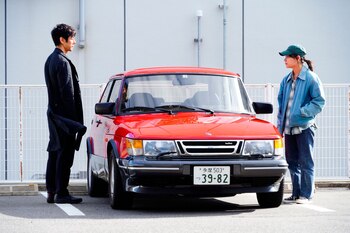
In the first quarter of each year, the billboard - and now streaming - is dominated by the Oscar films. In the case of 2022, there are ten titles competing for the main prize. Although in essence the Academy Award is focused on American production, in recent years the game has opened up quite a bit. As long as the rules are followed in order to be elected, any film in the world has a chance, more than ever. Drive My Car (Doraibu mai kâ, 2021) is the first Japanese feature film in history to compete for the Oscar for Best Film. Although it is only a statistic, it also marks a change in trend. Two years ago a Korean film, Parasites, swept away the main awards. And once the Oscar makes a turn, he insists on it for a while. Oriental cinema now has winds in favor.
Drive My Car stars Yusuke, actor and theater director. A family drama has put their marriage in a borderline situation and the unmanifested discovery of infidelity brings everything to a hasty end. But a second tragedy strikes Yusuke and he is left alone in front of his future. Then accept a trip and stay in Hiroshima to stage a version of Uncle Vania at a theater festival. A young woman named Misaki is assigned to her as a chauffeur and the long car rides are a space to explore her anguish and pain.
The film is very simple in its form, beyond the ambition it has in its themes. This is the adaptation of a short story by the famous Japanese writer Haruki Murakami, which is surprising if you think that the film lasts three hours. That duration is also striking, considering that it is a rather intimate title, with few central characters and a new limited number of situations. But it has a structure that doesn't make it feel like the story has stretched. As a singular fact, it has the titles of credit to the forty minutes of the film, something that is not a whim, but rather shows the twists that the narrative gradually discovers.
The history of Japanese cinema is full of teachers. The most recognized by the Oscar was undoubtedly Akira Kurosawa, but beyond the awards there were teachers such as Yasujiro Ozu, Mikio Naruse and Kenji Mizoguchi who performed an influential and definitive work. The years passed and there were many more directors, some with nominations for the Oscars, but never reaching the Oscar for Best Film. Drive My Car has four nominations: Best Film, Best Director (Ryûsuke Hamaguchi), Best Adapted Screenplay and Best Foreign Film. He has a chance at the last of these awards, but even if he did not win any, he has already achieved his place in history. He has previously won other awards, such as three prizes at the Cannes Film Festival.

But why did this film come here among so many others? The taste of the Academy varies and there are fashions. Oriental cinema is now under the lights of the voting members and campaigns are aimed at them to reach the coveted statuette. But adapting Murakami is also a point of interest and, something they love in Hollywood, the idea that there is a work by Anton Chekhov at the center of the plot is also very much to the academic taste. Another interesting fact is that one of the actresses of the work in the film is deaf, something that has also become a point of interest and a mark of integration in the audiovisual industry. Coda: Signs of the Heart, another nominee this year, is an even more notable example of this.
The fact that one of the ten films nominated this year is a Japanese title is neither good nor bad in itself, but it speaks of an interest in seeking other horizons that is always healthy. Unfortunately, the current distribution of films makes it very difficult to see this title in theaters around the world. Now it comes to streaming with MUBI and, for example, in Argentina, it is released in a single cinema, giving viewers the option to watch it on the big screen. Although Drive My Car is not a film with bombastic scenes, it is clear that it was intended for cinema. The exploration of the characters, their faces and their dilemmas are much better seen in cinema, where the right climate is created to pay attention to the stories.

KEEP READING:
Últimas Noticias
Debanhi Escobar: they secured the motel where she was found lifeless in a cistern
Members of the Specialized Prosecutor's Office in Nuevo León secured the Nueva Castilla Motel as part of the investigations into the case

The oldest person in the world died at the age of 119
Kane Tanaka lived in Japan. She was born six months earlier than George Orwell, the same year that the Wright brothers first flew, and Marie Curie became the first woman to win a Nobel Prize

Macabre find in CDMX: they left a body bagged and tied in a taxi
The body was left in the back seats of the car. It was covered with black bags and tied with industrial tape
The eagles of America will face Manchester City in a duel of legends. Here are the details
The top Mexican football champion will play a match with Pep Guardiola's squad in the Lone Star Cup

Why is it good to bring dogs out to know the world when they are puppies
A so-called protection against the spread of diseases threatens the integral development of dogs




